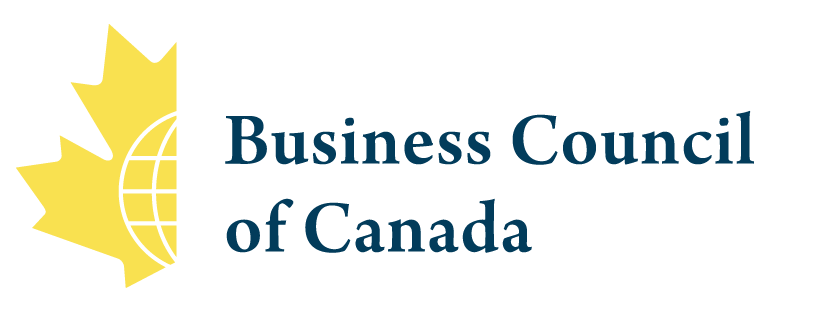
Canada’s Moonshot: Charting a Mission-Oriented Innovation Strategy
Building the blueprint for Canada’s first national advanced research agency and transformational innovation.How can a mission-oriented approach to innovation policy help harness Canada’s strengths and resources to solve our most pressing collective challenges?
In the wake of COVID-19, Canada has an opportunity to reorient its innovation policy to maximize economic, social and environmental benefits. Through this project, the Public Policy Forum and Brookfield Institute for Innovation + Entrepreneurship will chart an ambitious and practical road map for harnessing Canada’s innovation potential to drive economic growth and respond to our most pressing collective challenges.


Why we’re doing this project
Governments spend billions to foster innovation, but the economic, environmental and social return on this investment is not always evident. Canada’s innovation policy landscape remains fragmented, and Canada lags on key indicators of innovation, including business R&D, technology adoption, and new product and service development.
The COVID-19 pandemic has precipitated an economic crisis that demands an ambitious and purposeful policy response. It has also demonstrated the potential of innovation to tackle massive challenges—like the development and roll-out of vaccines in less than a year. As Canada seeks to build a more resilient economy, new policies are needed to clear a path to global scale for Canadian innovation, and to focus innovation where we need it most.
Orienting innovation policy around “missions”—well-defined objectives related to a social challenge, with a set timeframe—could help to achieve this aim by leveraging innovation as a vehicle for developing and commercializing products, services, and processes that drive economic growth and productivity, while at the same time generating better outcomes for people and the environment.
Mission-oriented innovation policy is not a new idea: The quintessential example dates back to the 1950s, with the Apollo program’s mission to land humans on the moon and return them safely to Earth, leading to numerous ancillary technological advancements used in applications ranging from portable computers to solar panels, cordless drills, and memory foam. More recent examples of “missions” include developing robotic technology for elder care in Japan, protecting against flooding and sea-level rise in the Netherlands, and the European Union’s commitment to identifying specific missions in five challenge areas related to cancer, climate change adaptation, ocean protection, net zero cities, and soil and food health.
While we can learn from these and other examples, it is not yet clear what it would take to successfully implement mission-oriented innovation policy in Canada.
PUBLICATION
This created a timely and relevant opportunity to provide commentary on a specific implementation of moonshot innovation policy. In their latest report, New North Star 3, authors Sean Speer and Robert Asselin investigate how best to establish CARPA, including its mandate, governance, talent, organization, and objectives.
ABOUT THE AUTHORS
Sean Speer is currently PPF Scotiabank Fellow in Strategic Competitiveness at the Public Policy Forum. He is also senior fellow at the University of Toronto’s Munk School of Global Affairs and Public Policy. He previously served as a senior economic adviser to former Prime Minister Stephen Harper.
Robert Asselin is a Fellow at the Public Policy Forum and Senior Vice-President, Policy at the Business Council of Canada. From 2017-2020, he was Senior Global Director, Public Policy at Blackberry. In 2017, he was appointed Senior Fellow at the Munk School of Global Affairs and Public Policy at the University of Toronto and Fellow at the Public Policy Forum. From 2015 to 2017, he served as Policy and Budget Director to Canada’s Finance Minister. From 2007 to 2015, Mr. Asselin was the Associate Director of the Graduate School of Public and International Affairs at the University of Ottawa. In 2014, he was a Visiting Public Policy Scholar at the Woodrow Wilson International Center for Scholars in Washington, D.C. Mr. Asselin was a Policy Advisor to Prime Ministers Paul Martin and Justin Trudeau.
PROJECT AFFILIATE
The Public Policy Forum and the Brookfield Institute for Innovation + Entrepreneurship have engaged in an intellectual collaboration to explore mission-oriented innovation policies, their precedents and applications for Canada. We are pleased to produce complementary reports that will be instrumental in providing valuable insights to the Canadian government on how best to select, structure, and execute a moonshot approach to innovation policy in Canada.
In February 2022, Brookfield released a report titled Canada’s Moonshot: Solving Grand Challenges Through Transformational Innovation exploring how a moonshot approach to innovation policy can harness Canada’s strengths and resources to help solve pressing collective challenges.

GET INVOLVED!
For more information or to connect with the project team, please contact: Marlena Flick, Policy Lead (mflick@ppforum.ca)














